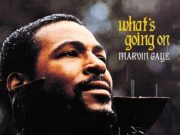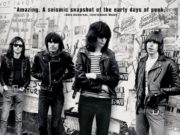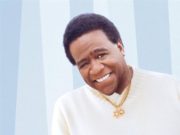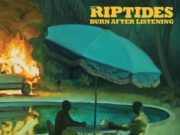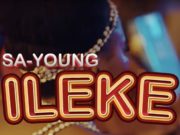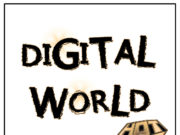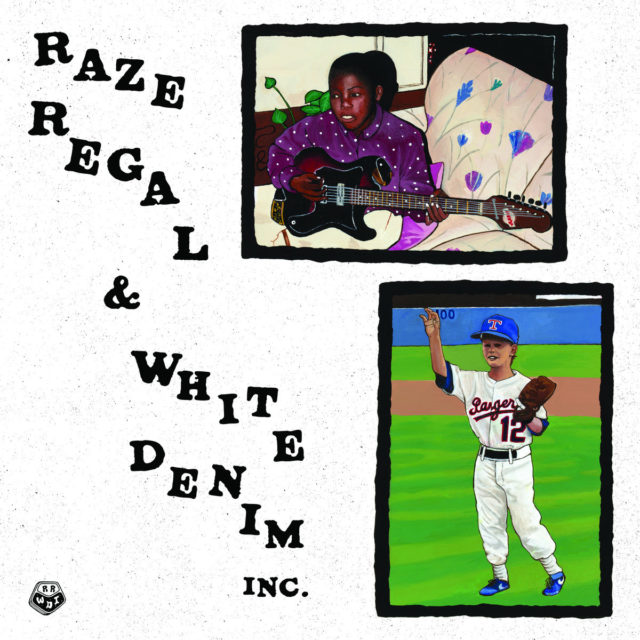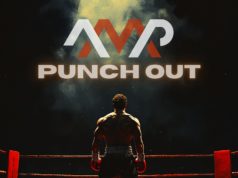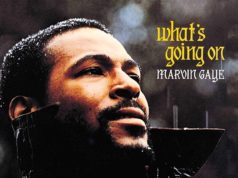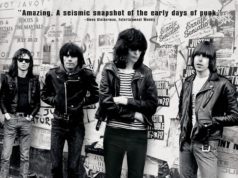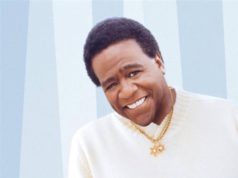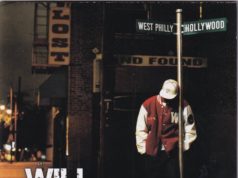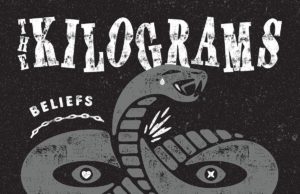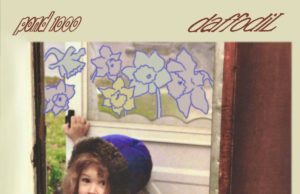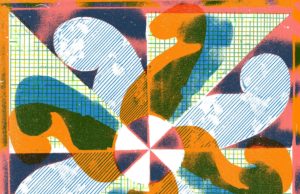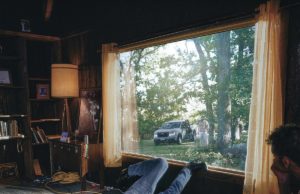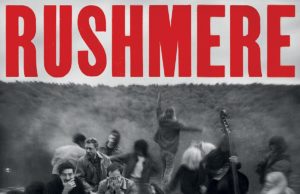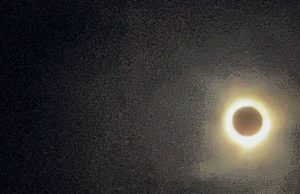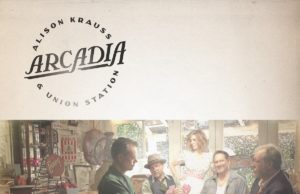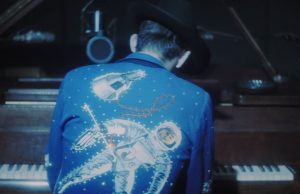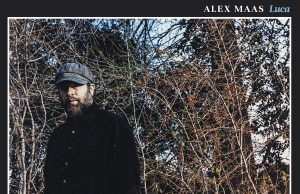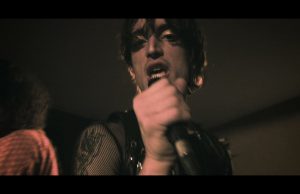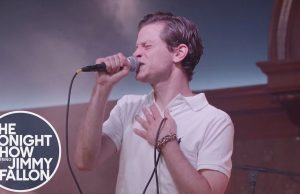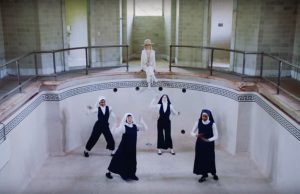THE EDITED PRESS RELEASE: “Sometimes, even amidst the most chaotic moments of our lives, things have a way of coming together.
Prolific guitarist Raze Regal and James Petralli — founding member and vocalist of Austin, Texas indie-rock legends White Denim — met during a West Coast tour in 2019, and quickly formed a friendship over their mutual love of ’60s and ’70s rock, the jazz saxophone innovations of Eddie Harris, Joe Henderson and Wayne Shorter, ’80s R&B production and New Wave energy. In another world, their rapport might have remained casual; two music fans meeting occasionally in loud venues to share a drink and catch up on their respective projects. Luckily for music lovers, that’s not what happened. What followed was a period of intense personal change, growth, and transformation — a period reflected in the creation of Raze Regal & White Denim Inc., a collaborative album that saw both musicians pour blood, sweat, and tears into some of the most soul-affirming music of their careers.
“It was a very hard time for both of us,” explains Raze matter-of-factly, from his home in Austin. He relocated there in 2020, smack dab in the middle of the pandemic, after ending a long-term relationship and the dissolution of his previous band back in Oakland. “This record was born out of the friendship and the closeness that James and I share, as well as pure creativity.” With Raze in serious need of a change of scenery, Austin and James provided just the right atmosphere to let his creative juices flow a little more freely. “James and I were talking, and he was like, ‘Come up to Austin!’ and I was like, ‘Maybe I should.’ We would just kind of hang out in those early days, and then I started writing these tunes, and I started presenting them to James. They were just sketches of ideas I had, and he was like, ‘You know these are really good. What if we worked on these together?’ And I was like, ‘Absolutely.’ ”
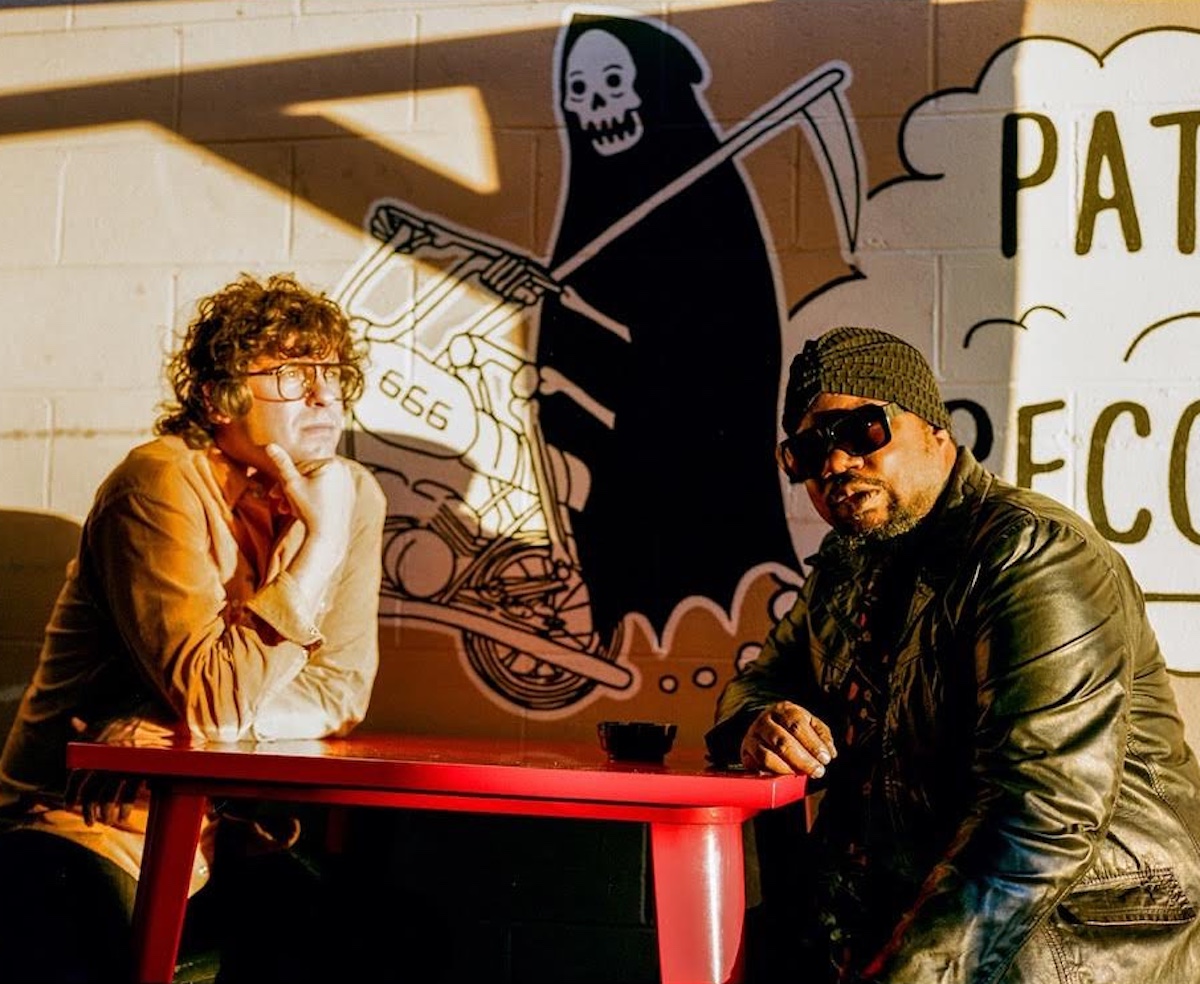
It wasn’t long before the duo realized they had something special on their hands. It was more than just the fact that they were good at writing together — there was something deeply complementary in the way Raze and James thought about music and songwriting that made them better than the sum of their parts. The work took place at Radio Milk, James’ studio, and the process proved to be slightly more intense that either of them had imagined. “The week Raze arrived in Austin he joined my family/creative bubble, and we began writing and cutting music together,” explains James. “Through these initial sessions I learned that Raze possesses a unique gift as a lyricist and songwriter as well as a striking and colourful chord vocabulary. He naturally led these writing sessions and I supported him as an editor, instrumentalist, and engineer. We quickly developed an easy flow together in the studio. Which was refreshing for both of us. These were particularly hard times: Raze and I became close friends and helped each other get to the other side.”
The result of these summertime sessions, Raze Regal & White Denim Inc., bursts at the seams with jazz chords, rock hooks, soul vocals, pop melodies, and everything that made the latter half of the 20th century some of the most cardinal music in human history. Completely eschewing the trappings of “retro” or “throwback” sentiments, the record could have only come from artists with such a deep knowledge of music that they are able to transcend references and homages, presenting something comfortably familiar yet totally fresh. Raze and James’ creative union took form before their very eyes, with James at first wanting to take more of a backseat role — but fate had other plans.
“Raze was bursting with musical ideas during a time when I was focused on learning how to capture and represent them,” James says, clearly holding his bandmate in the utmost respect. “He wrote the changes for the songs, and we cut demos together and he’d sit with a note pad and sketch lyrical ideas once the framework was down. I did my best not to impose too much as a writer, rather mostly offering perspective as a singer and sometimes pulling a few books off the shelf for consideration and reference. Raze was writing about our lives. We knew well where we were coming from.”
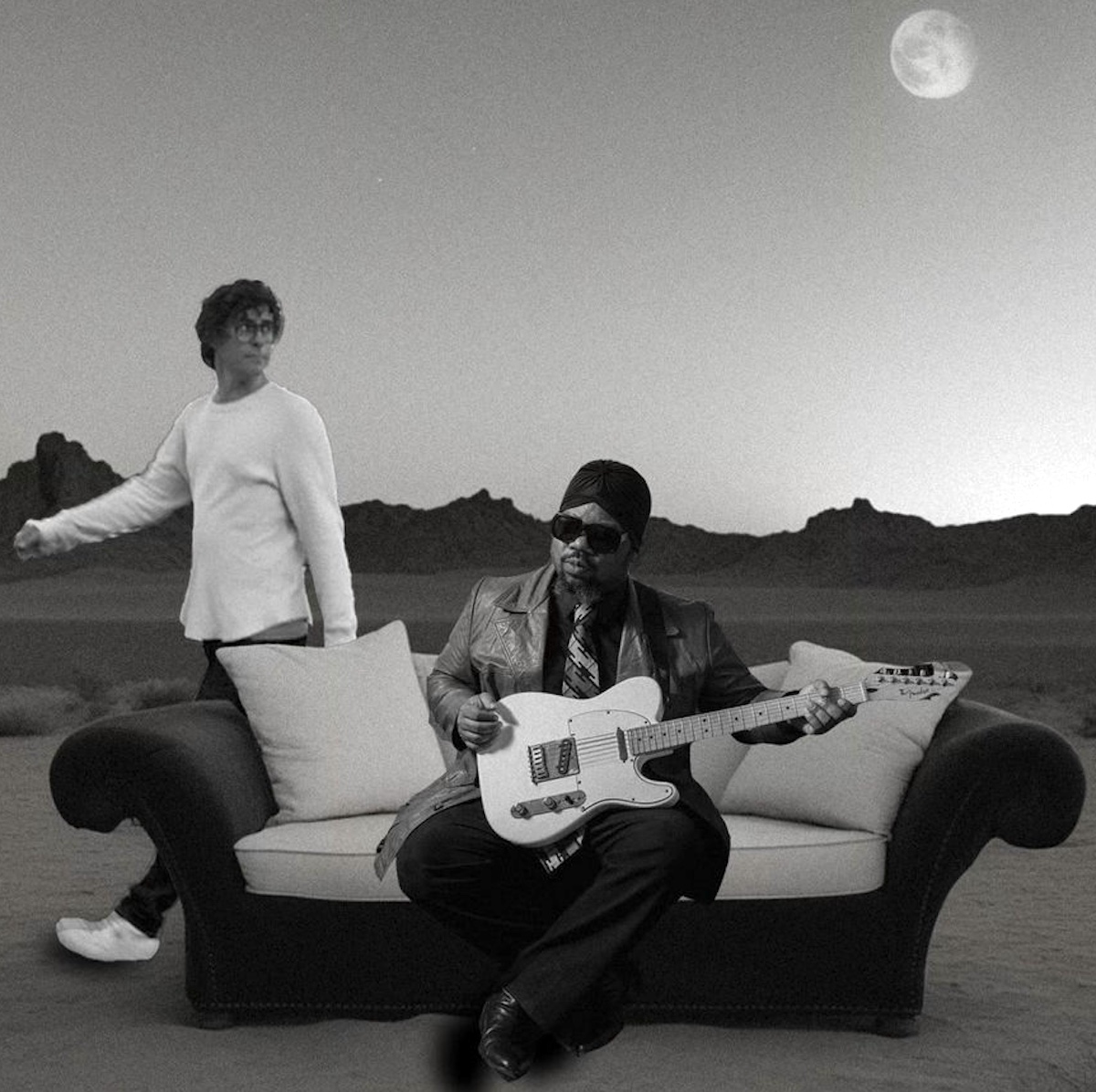
More than just a virtuosic musician, it feels like Raze the songwriter stepped out of another dimension — one where Sly Stone is president. The character he creates is one that is effortless, yet draws you in, and pairs perfectly with James’ earthy and conversational blues inflected vocals. “James is an incredible singer and he’s an incredible musical mind,” continues Raze. “He really has such zeal and passion in the studio, which, I’m a little different. I like to play and write, but I’m not really a studio cat. But James is such a wizard in the studio. We’d go through lyrics line by line, sit and work on the construction, for months at a time.” He pauses slightly. “You know what’s really interesting? If you think back to 2020, people really thought it was going to be forever, you know? Like, people really thought that this was going to be the end of everything. I think some of that isolation and some of that uncertainty comes across in the record. I’m very proud of it, it’s a hell of a record, if I don’t mind saying so myself,” he says with a laugh.
That uncanny uncertainty Raze is talking about is front and centre in the album’s opening track, the rollicking, jazz fusion-infused, upbeat funk number Ashley Goudeau. Named after a local Austin morning news anchor, the song is about what it’s like to form a parasocial relationship with someone you see on TV, and how real those feelings can become when experienced in a vacuum of, say, a global pandemic. “I would get up in the morning, and there Ashley Goudeau would be,” says Raze, almost wistfully. The main guitar hook spreads across the rubbery bassline and precise drum work like butter, but the influences on the song go even deeper. Raze makes a reference to the classic Peter Sellers comedy Being There directed by Hal Ashby (Harold and Maude), and how the main character only ever having seen real life on television inspired the track’s mood. A cinephile, Raze says that film inspires him even more than music, with filmmakers like John Cassavetes, Charles Burnett and Kathleen Collins all affecting the overall feel of the album.
That being said, the musical influences on Raze Regal & White Denim Inc. are both diverse and widespread. “Raze has encyclopaedic knowledge of modern music and is an avid collector,” explains James. “I thought I was a pretty voracious consumer of music but compared to Raze I’m still scratching the surface. Dude has heard every record and seen every film. Throughout the pandemic I would teach my kids during the day and on at least a couple nights a week get schooled by Regal in front of the turntable at the studio.”
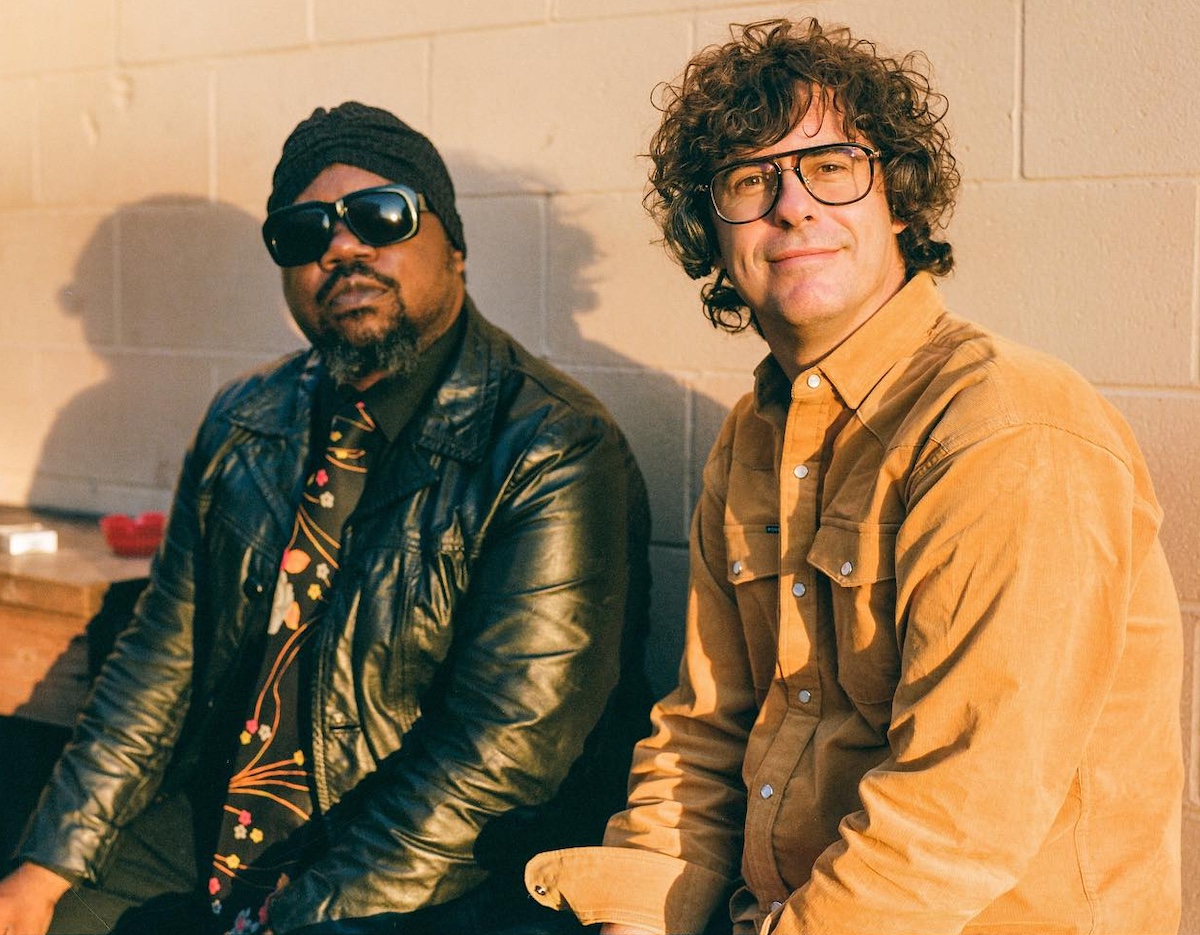
During these late-night chats, Raze says a few records came up again and again, and have left an indelible mark on the album. “There’s this Turtles record called The Turtles Present the Battle of the Bands, and the concept of the record is that every tune is the Turtles trying on various styles. We talked a lot about The Dukes of Stratosphear, which was Andy Partridge and Colin Moulding from XTC’s side project where they were like a ’60s, Nuggets-era kind of band.” It seems like these two records specifically not only influenced Raze and James’ musically, but also conceptually: Somewhere on the album lives this idea of exploring niche musical styles and creating a band around it, instead of the other way around.
Lead single Dislocation puts this theory to the test in the most delicious way possible. Smooth and bright, it would be right at home blasting out on a 1973 Trans Am, yet never slides into pastiche. Its knowledge of the past is full-bodied, but Raze and James’ command of the present keeps it feeling of-the-now. Tivoli, another highlight and maybe the album’s most straightforward pop tune, glides from The Cars to Steely Dan to Milton Nascimento with the aplomb of a disco-dancing roller-skater.
“I have collaborated like this many times in the past but never to this extent,” says James, finally. “I have been involved in productions and co-written quite a bit over the years but I didn’t intend to be the singer on this project initially. I think Raze ended up with the voice he had in mind when he was writing these tunes. I knew the pain in Raze’s words so well that it became mine in front of the microphone. I am proud of my friend and I for seeing this project through. The music on the album inspired so much for me. It was an honour to work on.”




